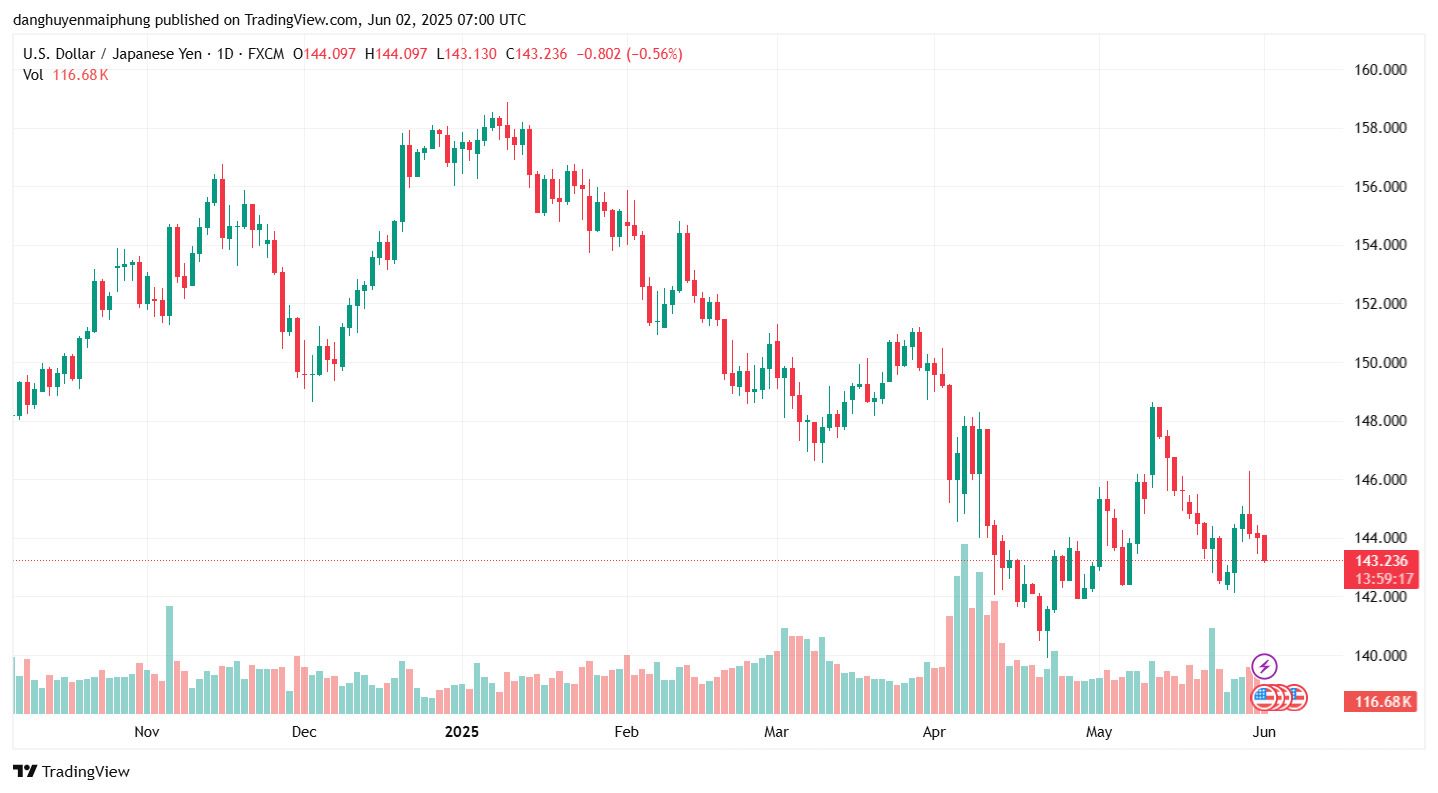Yen exchange rate today
According to Lao Dong, on June 2, the Japanese Yen (JPY) continued to increase in value against the US Dollar (USD), pushing the USD/JPY pair closer to 143, a low level in many days.

The main reason comes from expectations that the Bank of Japan (BoJ) will continue to raise interest rates this year - in contrast to the trend of interest rate cuts currently occurring in the US.
According to FXStreet, the consumer price index (CPI) in Tokyo has exceeded the BoJ's 2% target for three consecutive years, showing that inflationary pressures - especially from food prices - are still persistent. This increases the likelihood that the BoJ will act by raising interest rates again in the coming time, thereby boosting demand for the Yen.
Japanese Yen increases sharply thanks to expectations of BoJ raising interest rates and escalating global tensions
In addition to internal factors, the Yen also benefits from its role as a safe haven asset in the context of increasing global instability.
In Europe, Ukraine launched a large-scale drone attack targeting air bases deep in Russian territory, destroying more than 40 aircraft. In response, Russia has fired missiles at many targets in Ukraine right before the next round of peace negotiations.
In the Middle East, Israel continues airstrikes in the Gaza Strip, while the Houthi rebels in Yemen also announced a missile attack on an airport near Tel Aviv, despite being intercepted.
In the US, economic policy also contributed to weakening the USD. Newly released data showed that the personal consumption expenditure (PCE) index the Feds preferred inflation measure eased slightly in April, reinforcing expectations that the Federal Reserve (Fed) will start cutting interest rates from September.
Some investors even predict that there may be another interest rate cut in December. These expectations have caused investors to decrease their USD purchases, creating pressure on the greenback to weaken.
Japan is also making positive progress in trade negotiations with the US. Ryosei Akazawa, head of the negotiation delegation, said the two countries could reach an agreement this month, which further increased optimism for the Japanese economy and the yen.










